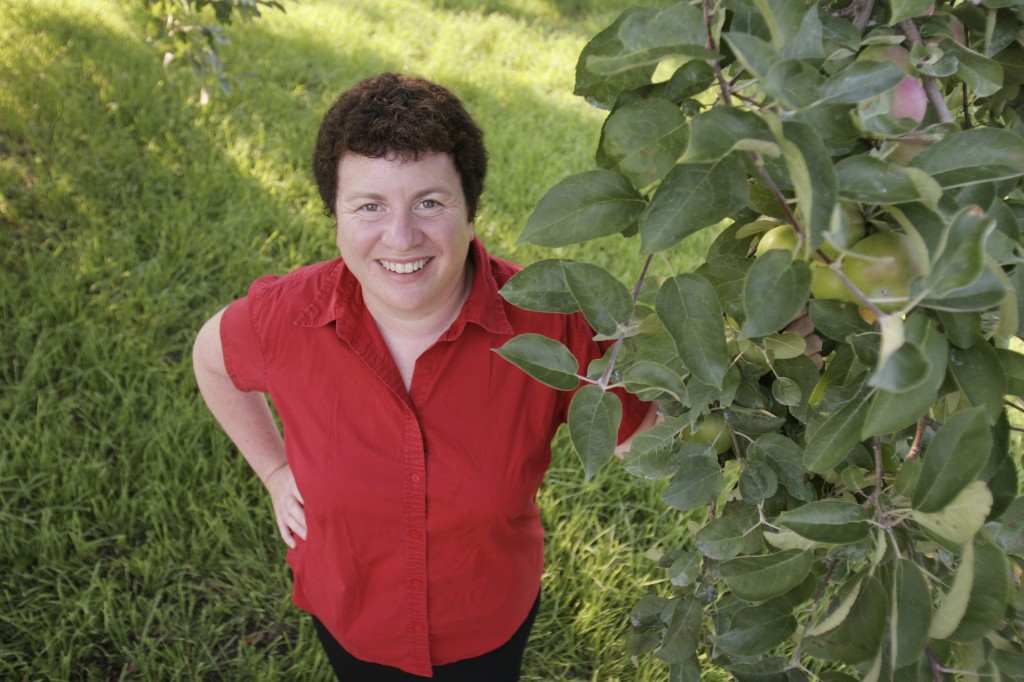
Faculty Director: Amy B. Trubek, Ph.D., Associate Professor, Department of Nutrition and Food Sciences
I have observed with fascination the groundswell of interest among Americans, (especially twentysomethings) in becoming passionate advocates for changing our food system. There is a real passion to know more, to do more.
My observations are not merely academic; I too graduated from college wanting to immerse myself in food, both in theory and practice. In those days (the mid-1980s) there were no graduate programs that allowed you to study food in a holistic manner, in contemporary parlance, from farm-to-plate. I cobbled together my own program of study, getting a culinary degree and a PhD in cultural anthropology. Over the course of an almost twenty-year career as a food educator, I am thrilled at all the new possibilities for teaching and learning about food, food culture, and food systems.
Here at the University of Vermont, we have launched an M.S. in Food Systems. The two-year, research track will begin in September 2012; the 18-month professional track will begin in September 2013.
Why UVM?
UVM is an ideal location for a graduate program that explores the complexity of contemporary food systems, and the power of emergence and interdependence in just what happens in any type of food system –from local to global, from subsistence to techno-science.
We have designed the program to provide students with a solid foundation in what we consider the core methods and concepts to what truly is a field on the frontier of higher education. We have designed the program to allow students to experience food systems in action – from a service learning seminar to travel immersion courses to problem- based research with faculty from across the University. (If you want to find out more about the MS program, learn more here.)
Why Higher Education Needs to Play an Active Role
As a teacher, I am truly energized when thinking about designing the most current, compelling and rigorous curriculum graduate curriculum on food systems. This is no easy task. Though harvesting, cooking and eating food is a constant human experience, the teaching about food in higher education has been inconsistent and compartmentalized. Twenty years ago at a university like UVM, you could take a course on soil health and never learn about different agricultural traditions, or a course on human nutrition and never learn about different food processing techniques.
Meanwhile, many academic disciplines simply ignored agriculture (why consider the work of peasants?) and food (why take seriously women’s work?).
Now that current cultural sensibilities have turned towards these topics, higher education teaching and research needs to catch up and capture the complexity of food in the human experience. This is our task at UVM.
What makes me bullish about our work ahead is the deep roots and broad base that we have here. We are a land-grant university in a small, rural agricultural state with a vibrant food culture. We now have a number of faculty teaching courses using a food systems approach. We have all the right assets for developing a vibrant curriculum that can help create the sustainable food system of the future that so many Americans asking for every day.
What aspect of our food systems would you like to learn more about?










